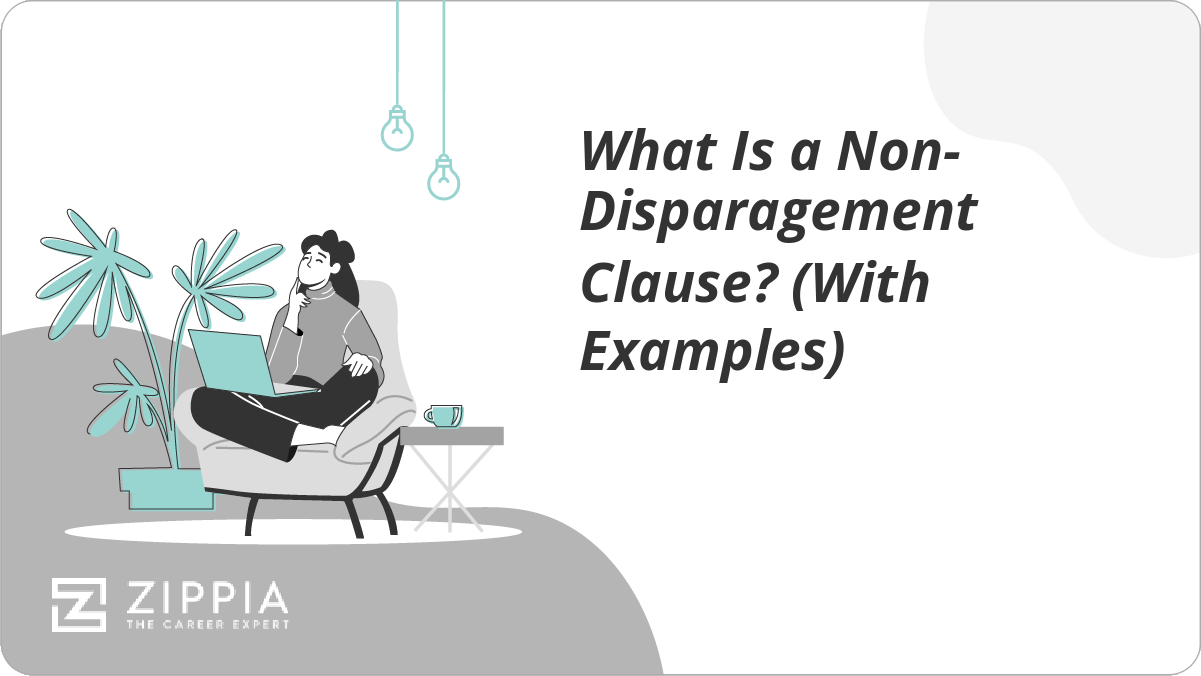A Non-Disparagement Clause is a legally binding agreement that prevents an employee from saying anything negative about their firm, clients, customers and their work experience in such a firm. It simply implies that if you ever speak negatively about the firm, notably in a manner that harms its reputation, the corporation has the authority to file a suit against you. However, every written and verbal communication under the scope of a non-disparagement agreement is protected. The article will discuss the general information about the non-disparagement clause and what happens in case of violation of the such clause.
What Is the Non-Disparagement Clause?
A Non-Disparagement provision is a clause of an employment contract that stipulates that the employee will not criticize the Company in any way. In simple words, a non-disparagement provision forbids you from making disparaging remarks about or offering bad opinions about an organization. Expressing negative comments about a company’s products, services, or senior officers might get you into legal trouble.
What Is the Purpose of A Non-Disparagement Clause?
A non-disparagement contract protects a business from negative publicity. Because a company’s goodwill and reputation impact its worth, a non-disparagement clause ensures that these factors continue to thrive.
Are Defamation and Disparagement the Same?
Defamation is not the same as Disparagement. Defamation is a far more limited term that solely pertains to disseminating incorrect information about a corporation to defame the Company. Disparaging a firm is saying anything adverse about it, even if it’s true and accurate. If you have criticized the Company in such a manner that has adversely affected the Company’s goodwill and its image in the market, then you may face legal repercussions. Defamation only covers fraudulent comments, whereas Disparagement includes factual statements regarding the firm.
When Do Companies Usually Ask for A Non- Disparagement Agreement?
Employees are generally asked to sign a non-disparagement agreement in one of two situations:
- When they are hired or
- When their job is terminated.
- In the Employment Contract:
For many organizations, it is a standard practice that a non-disparagement provision must be signed within the context of an employment agreement. It is usually not surprising to find a non-disparagement clause in an employment contract that you are required to sign when engaged. Non-disparagement provision is generally included in a contract that also incorporates non-compete and non-solicitation clauses. Many enterprises demand these agreements in the recruitment process because they have a perfect relationship.
- At the time of Termination
A company may also require an employee to sign a separation agreement that contains a non-disparagement clause. If you’re being removed, laid off, or resigned due to unethical employment practices, these agreements are generally part of the process. Your previous employer may require you to sign the non-disparagement clause as a condition of getting your severance payout as part of a settlement agreement.
Types of Contracts with Non- Disparagement Clause
Non-disparagement provisions are commonly seen in contracts such as:
- Agreements on Employment
- Non-solicitation contracts
- Non-compete agreements
- Separation agreements
- Contracts with contractors
- Agreements for severance pay
- Contracts of Termination.
What Happens if You Breach the Non- Disparagement Agreement?
It’s critical to be cautious after agreeing to a non-disparagement provision to avoid breaking it. If a clause is violated, the Court may have the authority to enforce the non-disparagement clause and remedy the other party.
-
Award Damages
For the injury caused by the violation, the Court will usually award general damages. The number of damages will be assessed on a case-by-case basis and determined based on the extent of the injury caused to the opposing party.
-
Repayment of Settlement funds
Your employer or previous employer may pursue legal action against you if you violate a non-disparagement provision. You might be sued, and you could be forced to repay the settlement funds, as well as pay for any losses the firm can establish you caused.
In Vice-Chancellor of Victoria University of Wellington v Sawyer [2017] NZERA Wellington 106, the Employment Relations Authority ordered a former employee of Victoria University of Wellington to pay an $8,500 penalty. It happened as a result of the employee sending emails with derogatory remarks.
Dr. Sawyer and the University signed a record of settlement that contained a mutual non-disparagement agreement that included two University employees.
Dr. Sawyer was accused of sending five emails to the two people named in the settlement, alleging significant dishonesty, professional incapacity, professional impropriety, fabricating records, fraud, and blackmail. The authority stated the breaches were deliberate, and Dr. Sawyer exhibited no regret among the considerations examined.
The purpose of this article is to provide a general overview of the subject. To know more about the Non- Disparagement Agreement, Please don’t hesitate to contact expert like. HHS Lawyers and Legal Consultations can assist you in determining if your circumstance meets for a claim of disparagement violation.
